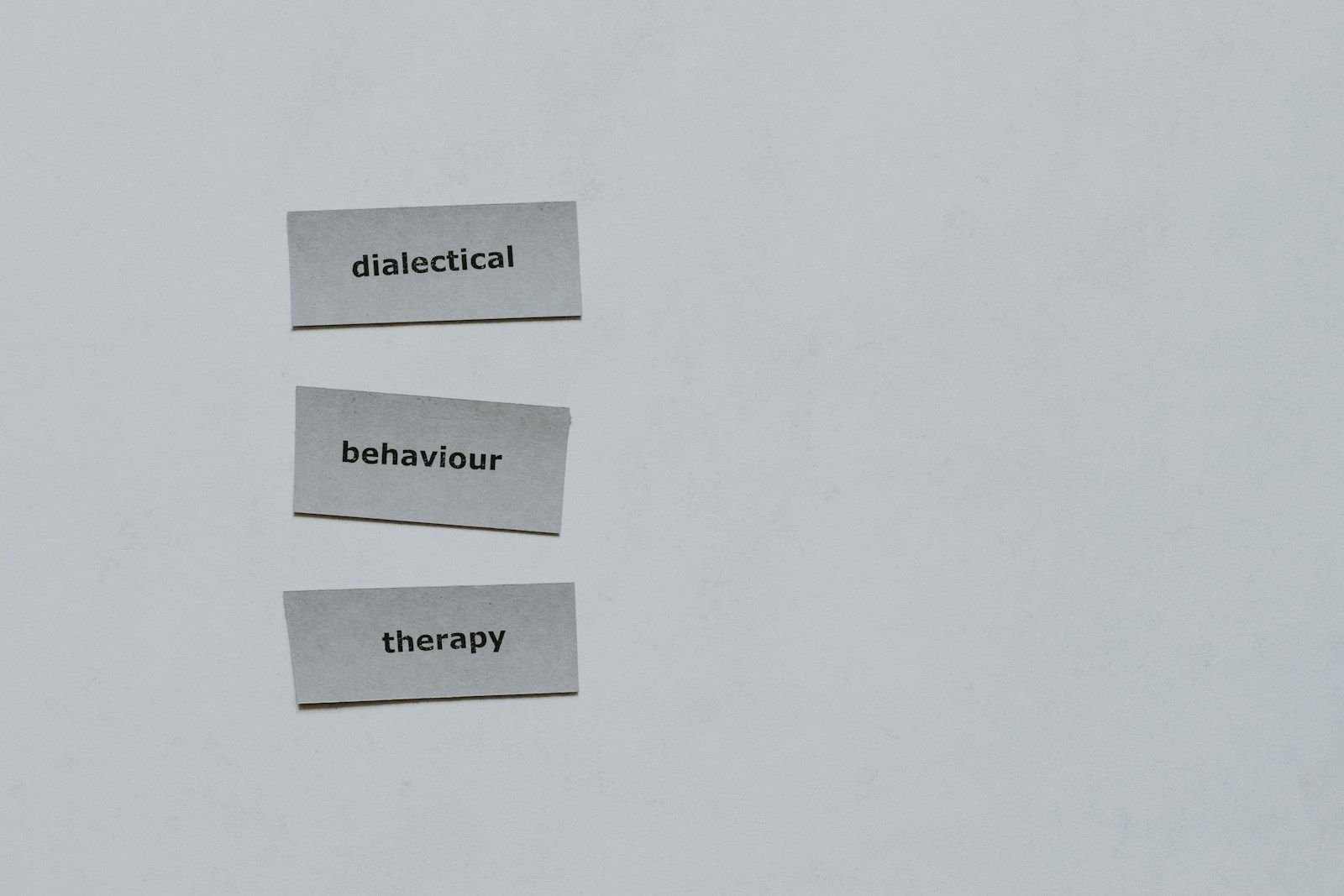Introduction
Emotional regulation and maintaining healthy relationships can be challenging. Dialectical-behavioral therapy (DBT) offers practical strategies to help individuals achieve emotional balance and enhance their interpersonal skills. This guide will explore DBT, its core components, and how it can benefit you.
Hi, I'm Meg Wallis, a Licensed Independent Clinical Social Worker and Certified Alcohol and Drug Counselor at Blackbird Behavioral. My focus is on providing Dialectical-Behavioral Therapy (DBT) to help individuals manage their emotions and improve their relationships. I'm committed to supporting your journey towards emotional balance and healthier interactions.
What is dialectical-behavioral Therapy (DBT)?

Overview of dialectical-behavioral Therapy
Dialectical-Behavioral Therapy (DBT) is a type of cognitive-behavioral therapy designed to help individuals manage intense emotions, reduce self-destructive behaviors, and improve relationships. It combines individual therapy with group skills training to teach coping mechanisms and emotional regulation.
Common Misconceptions
Many people believe DBT is only for those with severe mental health issues, but it can benefit anyone struggling with emotional regulation and relationship problems. DBT is also often misunderstood as being overly rigid or complex, but it is actually very adaptable to individual needs.
Core Components of dialectical-behavioral Therapy
Mindfulness
Mindfulness involves being fully present in the moment and aware of your thoughts, feelings, and surroundings without judgment. This practice helps individuals become more aware of their emotions and reactions, leading to better self-control.
Distress Tolerance
Distress tolerance skills help individuals cope with painful or distressing situations without resorting to self-destructive behaviors. Techniques include distraction, self-soothing, and improving the moment.
Emotion Regulation
Emotion regulation involves understanding and managing intense emotions. This includes identifying emotions, reducing vulnerability to negative emotions, and increasing positive emotional experiences.
Interpersonal Effectiveness
Interpersonal effectiveness skills help individuals communicate their needs and set healthy boundaries in relationships. This includes assertiveness training, learning to say no, and building and maintaining healthy relationships.
Benefits of Dialectical-Behavioral Therapy
Improved Emotional Regulation
DBT provides tools and techniques to manage intense emotions, reduce emotional outbursts and improve emotional stability.
Enhanced Relationships
By improving communication skills and setting healthy boundaries, DBT helps individuals build and maintain healthier relationships.
Better Stress Management
DBT teaches coping strategies to manage stress and distress, leading to better overall mental health.
Reduction in Self-Destructive Behaviors
DBT helps individuals develop healthier coping mechanisms, reducing the incidence of self-harm, substance abuse, and other self-destructive behaviors.
Techniques and Strategies in dialectical-behavioral Therapy
Practicing Mindfulness
Mindfulness exercises, such as deep breathing and meditation, help individuals stay grounded and aware of their present experiences, reducing impulsive reactions.
Developing Distress Tolerance Skills
Techniques like distraction, self-soothing, and radical acceptance help individuals manage distress without resorting to negative behaviors.
Emotion Regulation Techniques
DBT teaches individuals to identify and label their emotions, reduce emotional vulnerability, and increase positive emotional experiences through activities and lifestyle changes.
Enhancing Interpersonal Skills
Interpersonal effectiveness training helps individuals communicate more effectively, assert their needs, and build healthy, supportive relationships.
How to Get Started with dialectical-behavioral Therapy
Finding a Qualified DBT Therapist
Look for a licensed therapist with specialized training in DBT. You can search online directories, ask for referrals, or contact local mental health organizations for recommendations.
What to Expect in dialectical-behavioral Therapy Sessions
DBT typically involves both individual therapy sessions and group skills training. In individual sessions, you'll work on personalized goals and strategies, while group sessions focus on learning and practicing DBT skills.
Building a Support System
Having a supportive network of friends, family, or support groups can enhance the effectiveness of DBT. Sharing your journey with others can provide encouragement and accountability.
Conclusion
Dialectical-Behavioral Therapy offers valuable tools and techniques for managing emotions and improving relationships. By understanding and practicing the core components of DBT, you can achieve greater emotional balance and healthier interactions.
At Blackbird Behavioral, I am dedicated to helping you achieve emotional balance and improve your relationships through Dialectical-Behavioral Therapy. If you're ready to start your journey towards better emotional regulation and healthier relationships, visit www.blackbirdbehavioral.com to learn more about our services and how I can support you. Take the first step towards a more balanced and fulfilling life today.






